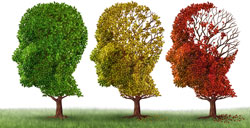Please click here to go to the most recent version of this course
Florida DOEA Approval: This course has been approved by the Florida Department of Elder Affairs for Nursing Homes (NH AD 9542), Hospice (HSP AD 9540), and Adult Day Care (ADC AD 9538). Approval through May 4, 2023.
Certified Trainer: The author is certified as an ADRD trainer by the Florida Department of Elder Affairs and is available via e-mail at [email protected] or by phone Monday–Friday from 9 a.m. to 5 p.m. (Pacific Time) at 707 459 1315. Training Provider Approval Number NH 2727.
Author: Lauren Robertson, BA, MPT
Contact hours: 1
Expiration date: May 4, 2023
Course price: $19
Course Summary
This training is for those of you who have direct contact with patients in nursing homes, adult day care, or hospice. It is designed to increase your awareness and understanding of Alzheimer’s disease and related disorders.
The first section of the course defines dementia, describes how dementia affects the brain, and discusses how the symptoms of dementia differ from normal age-related changes. The second section discusses the stages of dementia along with symptoms and behaviors you might see during the different stages. The last part of the course discusses communication challenges at the different stages of dementia, including patients with dementia who are receiving hospice, and provides tips for communicating with people at those different stages.Criteria for Successful Completion
Study the course material, achieve a score of 80% or higher on the post test (the post test can be repeated if a learner scores less than 80%), complete the course evaluation, and pay where required. No partial credit will be awarded.
Accreditation
To find specific accreditations or approvals, click here.
Course Objectives
When you finish this course you will be able to:
- Name 3 properties of dementia.
- Name 3 differences between normal, age-related changes and the changes seen in dementia.
- Describe the first symptom you are likely to notice in someone in the early stage of Alzheimer’s disease.
- Give one characteristic each for Alzheimer’s, frontal-temporal, vascular, and Lewy body dementia.
- Relate 1 symptom and behavioral change at each stage of Alzheimer’s disease.
- Describe 2 challenges facing caregivers at each stage of dementia.
- Outline 3 strategies for communicating with residents at each stage of dementia.
- Describe 4 problems faced by someone caring for a family member with dementia who is also on hospice.

